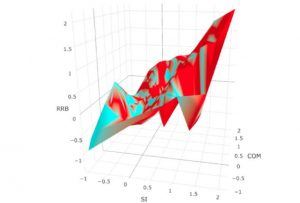
A recent study has suggested that there may be three distinct categories of traits that define autism, rather than one. These categories include problems with social interactions, difficulties with communication, and repetitive behaviors. The findings align with how autism is observed in clinical settings and support the idea that each autism trait is inherited independently. The study analyzed responses from parents of 3,825 individuals, ranging in age from 6 to 22, who had a variety of conditions, including autism.
The analysis revealed clusters of related traits not only in autism but also in ADHD and learning disabilities. It found that communication and social deficits are related but distinct traits in autism, contradicting current diagnostic criteria. However, some experts argue that these traits are closely linked in autistic individuals.
Critics of the study argue that its findings are limited by the available data. They point out that the questionnaire used in the study was designed to only detect three flagged traits and that autism scores are not truly independent, which is an important aspect of autism. However, the researchers defend their approach, stating that it is necessary to address each trait in the initial questionnaire.
It is important to note that the study only included children who were referred to a clinic for possible developmental disabilities or psychiatric issues, meaning that children in the general population were not included. Additionally, sensory issues were not included in the analysis.
The study’s findings were published in the Journal of the American Academy of Child and Adolescent Psychiatry in October. Another study by the same team also found that children with autism were more likely to exhibit atypical communication characteristics, such as repeating words or phrases, stammering, and reversing pronouns. The researchers used a statistical approach to identify subgroups of children with autism based on these traits.
